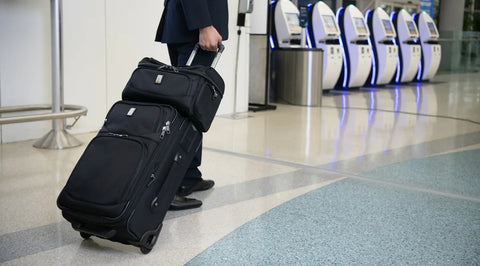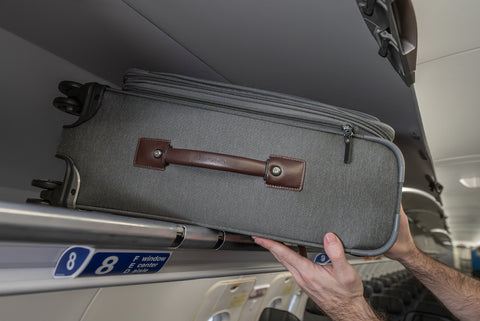Winter business travel can present a number of issues during the cold months, issues you don’t face in the other three seasons. For a business trip, there’s typically no room for error, which means that business travelers need to be prepared for every situation, as well as have backup plans in place. But best of all, make plans that get you ahead of a problem before it starts.
Here are a few tips to cope with winter business travel.
1. WINTER STORMS CAN BE A HUGE PROBLEM FOR TRAVELERS.
Always check the weather for your departing, arriving, and connecting airports. Knowing the kind of conditions you’re about to face will help you to be mentally and physically prepared, which can help you avoid sickness or physical injury. Make sure you have the appropriate footwear and attire for any kind of foul winter weather.
Foul weather is another reason you should always buy trip insurance. If your trip gets canceled because of the weather, you don’t have any recourse with the airlines. But your tickets can be reimbursed, as well as any other travel costs (hotels, rental cars), if you have the right kind of insurance. Also, you have to buy the insurance before the weather event starts, not after. So don’t buy it as soon as you see a winter storm has hit Chicago; that doesn’t work.
2. CONSIDER A MORNING FLIGHT
Believe it or not, there are a few advantages to booking a morning flight.
For one thing, you’re less likely to be affected by issues going on at other airports. Sometimes, an issue like a winter storm in Chicago or New York can back up flights all over the country, including the ones that aren’t going to Chicago or New York. Your plane may be coming from Chicago, or your connecting flight can’t land at another airport, because all those planes are waiting to go to New York.
Also, if your flight be delayed or canceled, you’ll be able to book another flight since you’ve got the rest of the day ahead of you. Plus, you can always rebook a flight at a gate.
(Quick note: If your flight is canceled, don’t go to your gate to rebook, because that’s what everyone else will do. Go to another gate of the same airline — they’re all connected to the same system, and they can help you just as easily.)
3. LOOK FOR BACKUP ROUTES
You may even want to book a backup flight if your business trip is a critical one. So while you may have a direct flight that gets you to your destination, make sure you also know about regional airports or airports that are a couple hours away from your destination.
At least this way, if you have a canceled flight because your airport is closed, you have some options. For example, if you can’t fly into Chicago because of the weather, could you get into Indianapolis? If Orlando is unavailable, how about Tampa/St. Pete?
If nothing else, you can fly into that airport and rent a car to drive to your final destination. It may not be ideal, but at least you’ll get there in the end.
4. HAVE RELIABLE WIFI, EVEN IF IT’S A HOTSPOT
Snowstorms are notorious for shutting down flights and causing delays. This can disrupt so much of your agenda, but you might be able to get certain things done, like meetings, if you have reliable wifi connections.
Make sure that each airport that’s associated with your trip has wifi, and that you know how fast it is. Depending on the costs and reliability — some airports charge an arm and a leg for fairly slow internet speeds — you may even want to consider a hotspot. While you can use your mobile phone for this, you might want a dedicated hotspot instead. It doesn’t chew up your data, although it does run through your battery fairly quickly.
5. FLY NON-STOP
Your best way to avoid winter business travel woes is to reduce the number of airports you visit by a third. You can do that by avoiding layovers and flying nonstop.
Not only does flying direct cut your travel time, but depending on where you live and your airline, your layover airport may be one that frequently has winter-related delays. For example, if you live in the Midwest and fly United, you’ll more than likely fly through Chicago’s O’Hare airport, which is often hit with winter travel delays. So you can avoid that by flying nonstop. And if you can’t avoid that, try to find a connecting airport in another city that’s less prone to have delays.
This not only gets you to your destination and/or home faster, but you’re less likely to be stranded in a layover airport that is neither your home nor your destination.
How do you cope with winter business travel? Do you have any cool stories about how you survived or avoided problems? Or horror stories about how you got caught up in one? Tell us about it on our Facebook page, or on our Twitter stream. You can also find us on our Instagram page at @TravelproIntl.
Photo credit: Agarre16 (Wikimedia Commons, Creative Commons 4.0)



